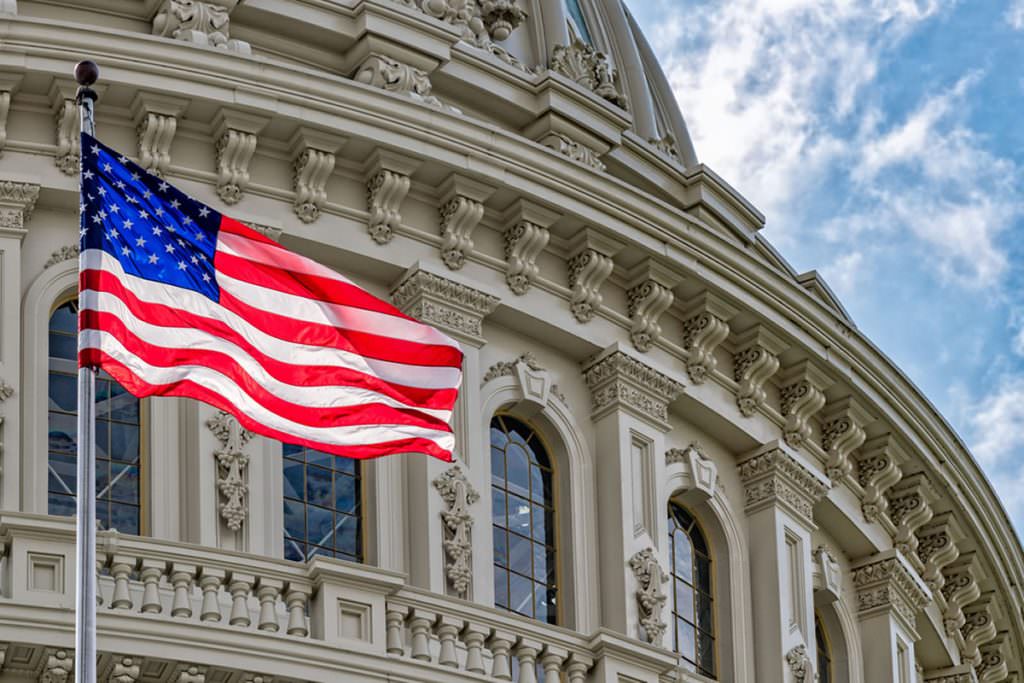
Over 50 representatives from the crypto, Wall Street and venture capital firms traveled to Washington DC on Tuesday with a clear message for the US Congress: regulate or watch the innovation leave the country.
The US Will Be Left Behind
The message came clear during the “Legislating Certainty for Cryptocurrencies” event hosted by Rep. Warren Davidson, as the Ohio Republican prepares to introduce a crypto bill this fall. Over the course of the meet, experts from Nasdaq, Andreessen Horowitz, Fidelity, Coinbase, and the US Chamber of Commerce exhibited their dissatisfaction with the ways US regulators have handled crypto regulations so far.
The US Securities and Exchange Commission, in the absence of a concrete definition for cryptocurrencies, uses “Howey Test” to define them as securities. The test comes from a 1946 Supreme Court decision which interprets investment contracts as securities. Crypto experts, however, believe that the law is too old to determine whether cryptocurrencies are securities or not. SEC Chairman Jay Clanton does not agree with the idea of updating old laws to cater to cryptocurrencies. Thus, the uncertainty remains.
Carla Carriveau, a former SEC executive, now working as senior regulatory counsel at crypto finance firm Circle, said that only the US Congress could make a real impact by initiating moves to change old standards. Then, it would be simpler for SEC to clarify existing laws and make exemptions or amendments for cryptocurrencies.
“Congress has to act because the SEC has said what they thought was right, and already what did what they thought they needed to do,” she asserted.
Muke Lempres, the chief of legal at one of the world’s leading crypto exchanges Coinbase, too maintained that digital currency firms like theirs want the same thing as regulators do: a fair and orderly market. “It doesn’t have to be done in the same way it was done in the past, and we need to be open to that,” he said.
Panelists also discussed how ICOs, especially the genuine ones, are finding it difficult to prove their compliance with the SEC since they offer “utility tokens.” They explained that utility tokens have a completely different use case as that of the security assets; which is why it would be reasonable for CFTC to regulate them not the SEC.
Otherwise, these companies would fly to crypto-friendly countries, costing the US talent and innovation both. The industry has already witnessed a mass exodus of companies from New York after the introduction of BitLicense, the local Bitcoin law.
“Foreign companies are able to outraise their US competitors and often whoever raises the most money is who wins,” reminded Jesse Powell, the CEO of the crypto exchange Kraken, to the US lawmakers.
Rep. Tom Emmer, Republican, Minnesota, who was also among the panelists, recognized that there is no time left to waste. Rep. Darren Soto, Democrat, Florida, agreed with his colleague and said:
“There needs to be some streamlining based on the definitions of digital assets.”
Image from Shutterstock
